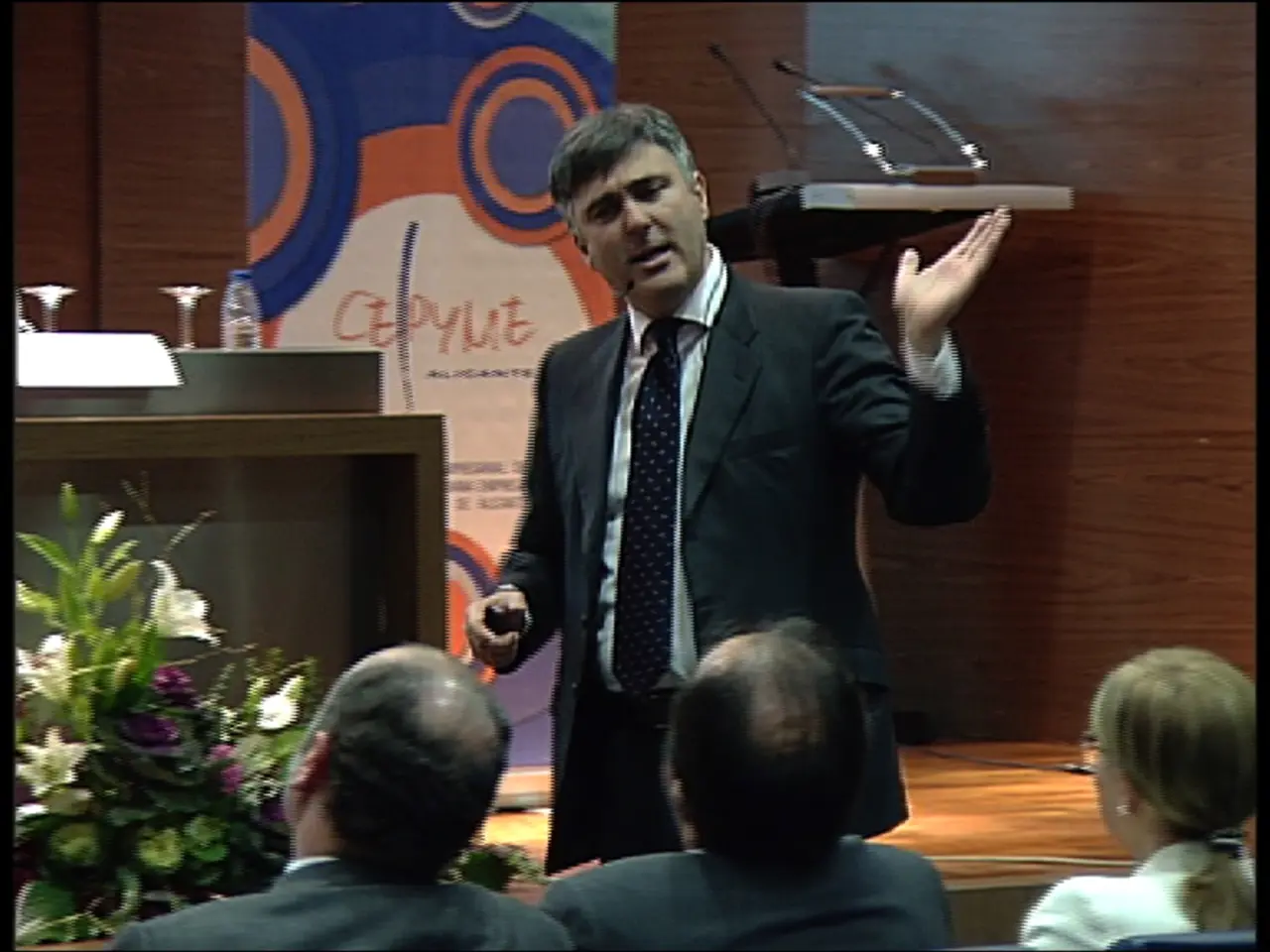CDU leader receives a call from Merz at the Chancellery
A crisis is brewing within the black-red coalition government in Berlin, as Chancellor Friedrich Merz gathered top CDU politicians for an evening meeting at the Chancellery on Tuesday.
The sextet of senior CDU politicians, including Minister of Education Karin Prien, State Secretary for Agriculture Silvia Breher, NRW Minister of Health Karl-Josef Laumann, and Saxony's Minister President Michael Kretschmer, gathered to discuss the coalition's crisis-like situation.
The meeting was called to address the severe economic difficulties facing Germany, with rising insolvencies, unemployment nearing 3 million, and consumer confidence deeply negative. Business closures are widespread, casting doubt on the coalition's economic strategy.
Political tensions within the coalition are also pronounced. The CDU’s Bavarian sister party has demanded sharp cuts to social benefits for Ukrainian refugees, a move opposed by the SPD. This has led to warnings from SPD Vice Chancellor Lars Klingbeil for conservatives to avoid provocations.
The coalition has also faced disputes over judicial appointments to the Constitutional Court and controversies over policies like gendering bans in public broadcasting, which have stirred public dissatisfaction. Chancellor Merz is perceived as focusing on long-term, big-picture issues but not sufficiently attending to the smaller, immediate concerns driving these conflicts, further straining coalition unity.
These economic woes combined with political infighting have caused public dissatisfaction to rise, with only about 28% of the population satisfied with the government's work and significant skepticism about Merz’s leadership and communication style.
The meeting extended into the early hours of Wednesday morning, as the CDU leadership discussed the non-implementation of the reduction in electricity tax for all, initially promised by the Union in the election campaign and later in the coalition agreement. Notably, the heavily weakened Union parliamentary group leader Jens Spahn was reportedly not present.
Despite the government spokesman's denial that it was a "crisis meeting", the unresolved disputes, economic challenges, and waning popular support constitute a critical crisis facing the black-red coalition as it approaches upcoming election events.
In a recent development, a Forsa poll shows that the AfD is now the strongest party in Germany, while the Union and SPD together only receive 37 percent of the votes. This stark shift in public opinion adds further pressure on the coalition to address its internal issues and regain public trust.
- The crisis within the black-red coalition government in Berlin is also affecting the policy-and-legislation agenda, as political disagreements on issues such as social benefits for Ukrainian refugees and controversies over policies like gendering bans in public broadcasting have been a point of contention.
- In the general-news sphere, the black-red coalition faces a critical crisis, as rising economic difficulties, political infighting, and public dissatisfaction have caused a significant shift in public opinion, with the AfD becoming the strongest party in Germany and the Union and SPD combined only receiving 37 percent of the votes.
- The crisis-like situation within the coalition government has extended to the crime-and-justice sector, as the non-implementation of the reduction in electricity tax for all, a promise initially made by the Union in the election campaign, has added to the increasing public discontent.








